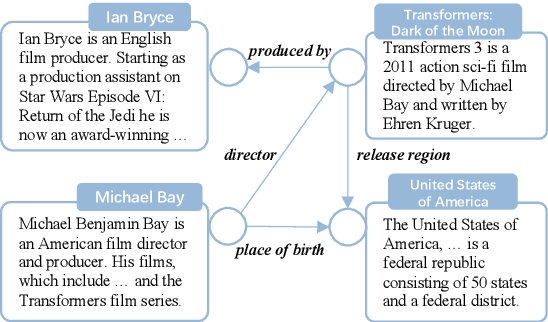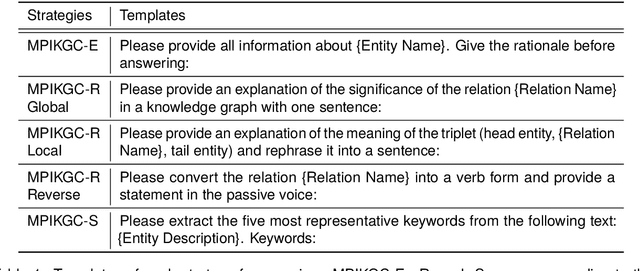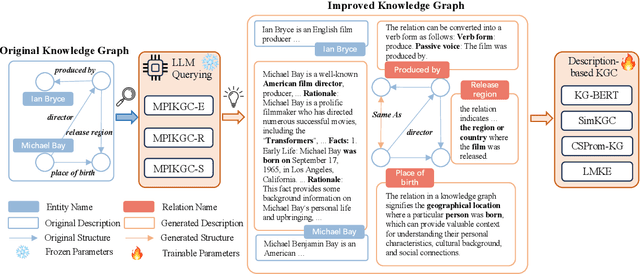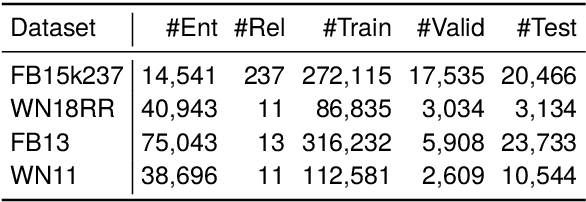Multi-perspective Improvement of Knowledge Graph Completion with Large Language Models
Paper and Code
Mar 04, 2024



Knowledge graph completion (KGC) is a widely used method to tackle incompleteness in knowledge graphs (KGs) by making predictions for missing links. Description-based KGC leverages pre-trained language models to learn entity and relation representations with their names or descriptions, which shows promising results. However, the performance of description-based KGC is still limited by the quality of text and the incomplete structure, as it lacks sufficient entity descriptions and relies solely on relation names, leading to sub-optimal results. To address this issue, we propose MPIKGC, a general framework to compensate for the deficiency of contextualized knowledge and improve KGC by querying large language models (LLMs) from various perspectives, which involves leveraging the reasoning, explanation, and summarization capabilities of LLMs to expand entity descriptions, understand relations, and extract structures, respectively. We conducted extensive evaluation of the effectiveness and improvement of our framework based on four description-based KGC models and four datasets, for both link prediction and triplet classification tasks.
 Add to Chrome
Add to Chrome Add to Firefox
Add to Firefox Add to Edge
Add to Edge